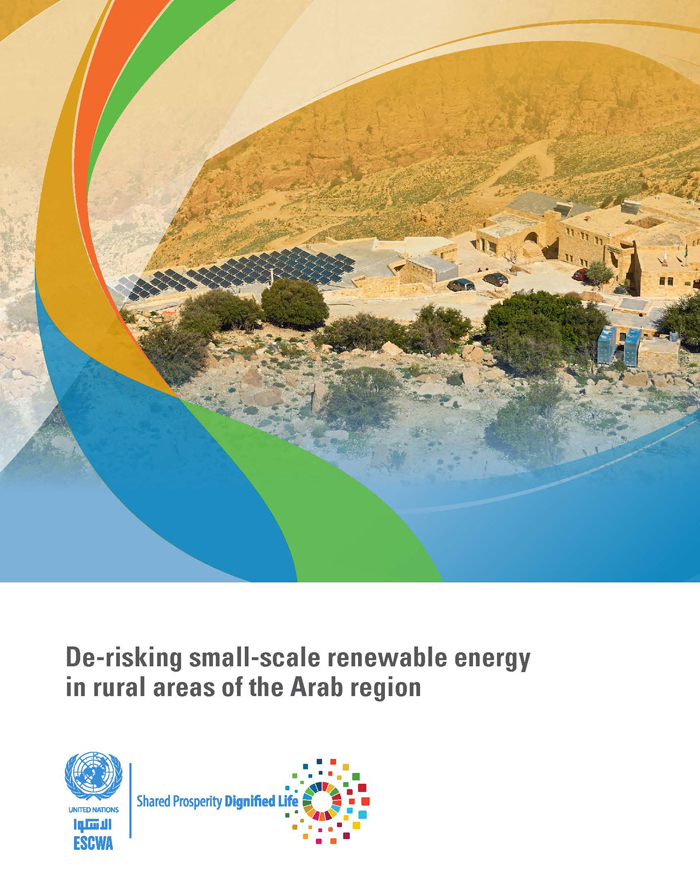
ESCWA Publication: E/ESCWA/CL1.CCS/2023/Policy Brief.1
Country: Arab region
Publication Type: Policy briefs
Cluster: Climate Change and Natural Resource Sustainability
Focus Area: Natural resource sustainability
Initiatives: Promoting renewable energy investments
SDGs: Goal 7: Affordable and Clean Energy
Keywords: Arab countries, Energy policy, Energy efficiency, Renewable energy sources, Sustainable energy
Review of progress in the Arab region under the decade for sustainable energy
June 2023
The present report reviews the recent progress made in the Arab region towards achieving Sustainable Development Goal (SDG) 7 targets and emphasizes the potential for further advancements. Despite facing challenges such as supply chain disruptions, economic downturns, conflict and instability, the Arab region has made significant strides in utility-scale renewable generation, with many of these world-leading projects set to be rolled out in 2023. While there is room for improvement in providing equal access to electricity, particularly for rural areas and Arab least developed countries, the region has taken decisive steps to reduce its outsized reliance on fossil fuels. Renewable energy penetration rates have grown steadily, and energy intensity shows potential for further reductions. In commitment to achieving global climate goals, five Arab countries have pledged to achieve economy-wide net-zero emissions, some by 2050 and the others by 2060.
Priority actions over the next three years include integrating energy policies with socioeconomic objectives, promoting energy efficiency and renewable energy, and increasing public investment in clean energy access. Long-term strategies towards 2030 involve leveraging innovation and digital technologies for improved energy services, restructuring energy pricing systems, and integrating sustainable energy action plans into development strategies. The Arab region should also focus on enhancing multi-stakeholder partnerships and setting ambitious greenhouse gas reduction targets, including net-zero commitments. These actions will help to address the pressing need for sustainable energy transitions and ensure progress towards SDG 7 targets while leaving no one behind.
Related content
Natural resource sustainability
,
The present report reviews the recent progress made in the Arab region towards achieving Sustainable Development Goal (SDG) 7 targets and emphasizes the potential for further advancements. Despite facing challenges such as supply chain disruptions, economic downturns, conflict and instability, the Arab region has made significant strides in utility-scale renewable generation, with many of these world-leading projects set to be rolled out in 2023. While there is room for improvement in providing equal access to electricity, particularly for rural areas and Arab least developed countries, the region has taken decisive steps to reduce its outsized reliance on fossil fuels. Renewable energy penetration rates have grown steadily, and energy intensity shows potential for further reductions. In commitment to achieving global climate goals, five Arab countries have pledged to achieve economy-wide net-zero emissions, some by 2050 and the others by 2060.
Priority actions over the next three years include integrating energy policies with socioeconomic objectives, promoting energy efficiency and renewable energy, and increasing public investment in clean energy access. Long-term strategies towards 2030 involve leveraging innovation and digital technologies for improved energy services, restructuring energy pricing systems, and integrating sustainable energy action plans into development strategies. The Arab region should also focus on enhancing multi-stakeholder partnerships and setting ambitious greenhouse gas reduction targets, including net-zero commitments. These actions will help to address the pressing need for sustainable energy transitions and ensure progress towards SDG 7 targets while leaving no one behind.



